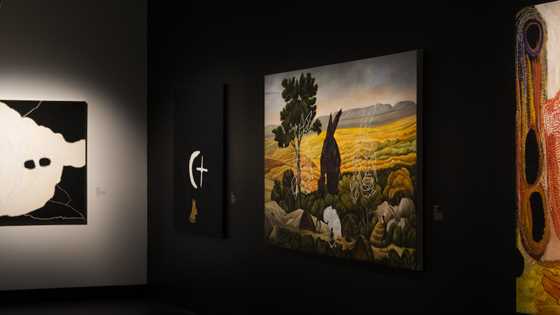Our biggest military engagement since World War II has been largely forgotten… Now, in telling the story of WA man Brian Cleaver’s quest to locate a mass grave, an Oscar-nominated filmmaker recalls the battles of Coral and Balmoral.
A pair of legs comes into view as a camera pans across a jungle clearing. They're clad in dirt-smeared trousers, sturdy boots laced up over their cuffs. The legs are stretched awkwardly behind their owner, over another body, motionless in the dirt. Both bodies have been thrown, with dozens of others, into a bomb crater in the Vietnamese jungle that will become their grave. The screen fades to black, and a title appears in burning red: The Crater.
It's the chilling opening scene of acclaimed filmmaker David Bradbury's new documentary about the fierce Vietnam War battles of Coral and Balmoral. It's a story he was inspired to tell after Perth Vietnam veteran Brian Cleaver (above) baled him up outside the Film and Television Institute in Fremantle, where David was running a documentary masterclass.
Brian pitched his story on the footpath outside the institute and, minutes later, David had made him exhibit A for a waiting audience of 30 filmmakers. "I took him straight in and showed them how I do it from day one," says David.
David relished the chance to make an ANZAC film that didn't glorify war. Plus, Vietnam is personal for him – although not conscripted himself, in 1966 he was of age to be eligible, and could well have drawn the dreaded 'marble'.
"Horrific" is how Brian describes the May 1968 battle at fire support bases Balmoral and Coral that claimed the lives of 26 Diggers and wounded 100. The battle was part of an offensive by the People's Army of Vietnam called Toan Thang ('total victory' in Vietnamese), which started the most protracted engagement of the war by Australians with North Vietnamese soldiers. "And no one knows about it," says Brian, shrugging.
"I'm not taking a thing away from the men who fought at Long Tan," he says, comparing Coral and Balmoral to the iconic battle that has been etched into Australian military folklore. "They fought hard, they lost men, and they deserve every accolade. But a major, who I won't name, said to me once that, compared with the battles at Coral and Balmoral, Long Tan was a skirmish."
He estimates there were fewer than 500 Australians against 3000 Vietnamese.
After an opening offensive in the middle of the night, four Australians and 42 Vietnamese men lay dead. Brian was part of the group that buried their bodies in a bomb crater – the burial ground that gave David both the title and the opening shot of his documentary. The storyline of the film traces Brian's return trips to Vietnam, in order to search for the burial site.
Vietnamese tradition dictates the remains of soldiers should be buried in a martyrs' graveyard, meaning hundreds of families can't properly bury loved ones lost in action. Brian made his first trip to find the crater in 2004, and he's been back almost every year since.
This was initially driven by a need to honour the dead from both sides, but the families of locals who died weigh heavily on his mind.

"We killed a lot of those men, and for no reason at all," he muses. "I think of their mothers, fathers, brothers, sisters, who are still grieving. If I was killed and buried somewhere in Vietnam I'd hope to hell that somebody would search for me. They do not have closure."
Returning to the site would seem an odd move for a man who, like so many vets, suffers from post-traumatic stress disorder. But to Brian, it is instead a source of healing. "(Other) veterans have gone back to visit with trepidation (but they) return wishing they'd gone back 30 years earlier," he says.
The film, too, has proven to be curative. "David has this manner behind the camera," Brian explains. "He would ask a question and you could see in his eyes: 'Continue'. He didn't have to say anything. Until then, I couldn't talk to anyone, not even my psychologist. The filming made me want to get it off my back."
David says that he hopes the film inspires others to talk, to remember the past and learn from what's happened. "My generation doesn't learn anything from history because we went and fought wars in Vietnam, which led to Brian and his comrades being traumatised," he says. "No one's learning from the lessons of history at all."









